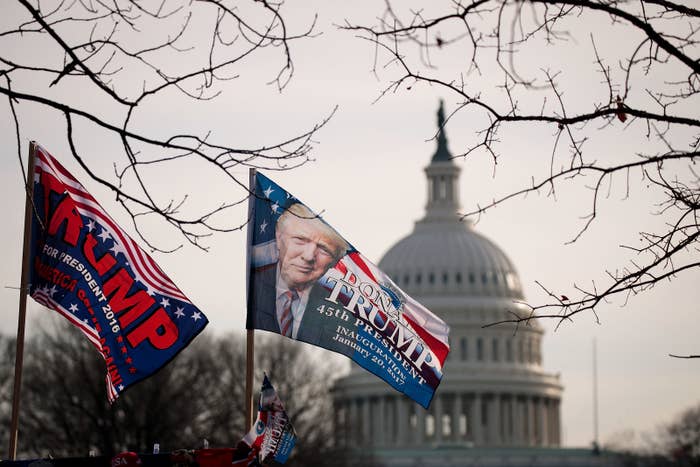
WASHINGTON — People who want to be close to the inauguration stage — as opposed to the non-ticketed area at the back of the National Mall — usually get tickets through their senator or congressional representative. How tough it is to get one of those tickets may depend on if your congressman is a Republican or a Democrat.
This year, with President-elect Donald Trump taking office, members who hail from red districts are experiencing incredibly high demand. And in a city where bipartisan cooperation is extremely rare, quite a few Democrats have handed over their unused tickets to help meet the needs of their Republican colleagues.
"Four years ago we were able to give away a lot of our tickets to Democratic offices, and this year a lot of those same offices returned the favor," said Hannah Smith, the press secretary for Congressman Bill Long, adding it was important to the congressman to make sure they had a lot of tickets for their constituents.
Long was not alone in facing high demand. South Carolina Rep. Mark Sanford, for example, received more than 3,000 requests from constituents in his district.
In blue districts, it is perhaps no surprise there was a sharp drop off in demand for constituent tickets to attend. More than 50 Democrats and counting are boycotting the inauguration (it is not unprecedented for members of Congress to skip the event, but many have publicly declared they will not be attending due to political disagreements with Trump), but even they are happy to give their tickets to other offices.
Rep. Donald Payne's office confirmed it saw a decline in demand following Trump's victory. Some constituents even told the office they no longer wanted them. Still, the tickets for that office went to constituents from the district and other members of Congress.
Some members made the effort to share their tickets with members from the same delegation, like Rep. Frederica Wilson, who shared tickets not claimed by constituents with other members of the Florida delegation who needed more.
Rep. Louise Slaughter's office also confirmed a "handful" of tickets went to nearby districts with particularly high demand in part because the office had some last-minute cancellations.
None of this is to imply that constituents from Democratic districts did not want to attend the inauguration. Rep. Gerry Connolly, for example, still had hundreds of requests and had all of his tickets to Trump's inauguration claimed. For President Barack Obama's inaugurations, Connolly's office said they had thousands of requests, as Obama was more popular in Connolly's district. Now that Trump will be President, the demand is higher in Republican leaning districts.
Geography also plays a part in the equation. One New Jersey office confirmed it always has a high demand for tickets to the inauguration based on the state's proximity to the capital. It is a much more feasible trip than for people who would come from across the nation.
The inauguration, which is set to take place Friday, is held outdoors, and anyone can attend. But to get into one of the areas closer to where the action will be at the Capitol, members of the public need to get passes through members of Congress.
Members of the House of Representatives receive 198 tickets to the inauguration each. Most of those tickets are standing passes, and members distribute them in various ways, including lotteries. Rep. Mike Quigley, for example, gave 41 of his tickets to students. His office said the rest went to constituents.
